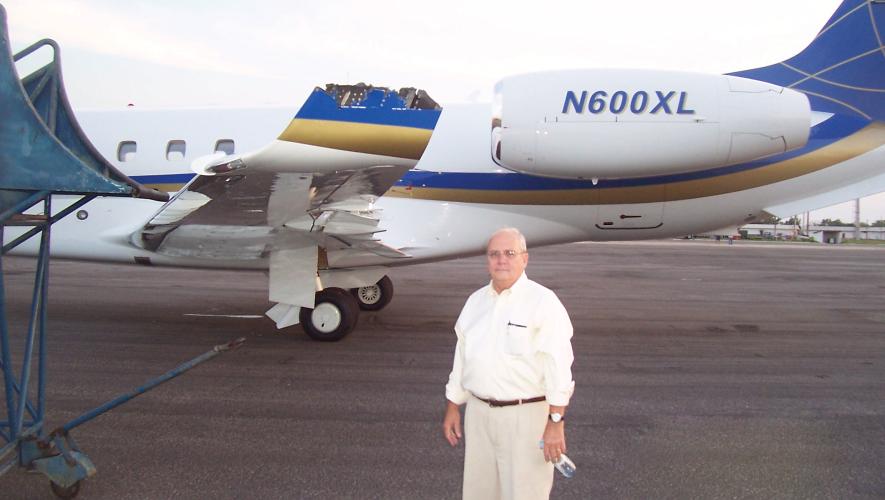With an aggressive response to Covid-19, the FAA is committed to keeping the U.S. National Airspace System “open for business and operating normally” and will “continue our vital safety work,” Administrator Stephen Dickson told an online audience in his keynote address yesterday during the virtual Business Aviation Safety Summit (BASS) hosted by the Flight Safety Foundation (FSF).
Introduced by FSF president and CEO Hassan Shahidi from his own remote location, Dickson recounted agency initiatives to cope with coronavirus, including staffing and operational changes, waivers and exemptions granted for various certificate holders and operators, and the new norm of its daily business. “It is breathtaking to think how quickly the world has changed,” he said.
To prevent repeats of coronavirus outbreaks that shut some ATC facilities, the agency has formed reserve pools of controllers isolated from one another and created additional sterile operational areas from repurposed conference rooms and administrative areas at some facilities. The agency reduced operating hours of 93 control towers, but Dickson noted all had secondary radar surveillance coverage, allowing operations to continue.
“A lot of these airports would be closed on the backside of the clock, anyway,” he added, and said decisions were made in consultation with the airports, their communities, and Department of Defense. He thanked unions representing employees for cooperation in the work changes.
Meanwhile, commercial air traffic has declined “about 68 percent to 71 percent on a daily basis” and “passenger volumes are down more than 90 percent,” he said. New York’s LaGuardia Airport, for example, normally averages about 1,100 operations daily. “We’ve seen some days down in the 40s,” he said, but noted an upside for beleaguered controllers: “Traffic has been brought down to the point where we can manage the entire system as if it was late at night or early in the morning.”
Regulatory relief measures, including suspending some recurrency and training mandates and crew quarantine requirements, have enabled U.S. flight operations to continue worldwide, he said.
Dickson also noted the FAA facilitated the repatriation of more than 70,000 U.S. citizens on more than 700 flights from more than 120 countries and is now “on the frontline for delivering supplies and moving first responders to where they're most needed.”
The agency has also “learned a lot about cleaning contracts,” as it scrambled for supplies of PPEs, sanitizers, and other personal safety equipment for its personnel, even as some ordered supplies were “repurposed for health care professionals.”
In addition, the FAA has quickly adopted online technologies. “Zoom is not something that we had ever really thought about,” Dickson said, noting its Commercial Aviation Safety Team (CAST) and General Aviation Joint Steering Committee safety teams now meet online. The FAA also recently hosted its first online safety risk management seminar—on Airport Surface Detection Equipment and ADS-B. Internally, the FAA is conducting some 1,500 online meetings daily, with Dickson himself holding as many as a dozen a day.
Going forward, the agency will continue to base its Covid-19 policies and procedures on the most up-to-date Centers for Disease Control and Prevention guidance.
Originally scheduled for Savannah, Georgia, BASS 2020 marks the first year the FSF is not hosting an annual on-site BASS, co-sponsored by NBAA, since the inaugural gathering in 1955.







